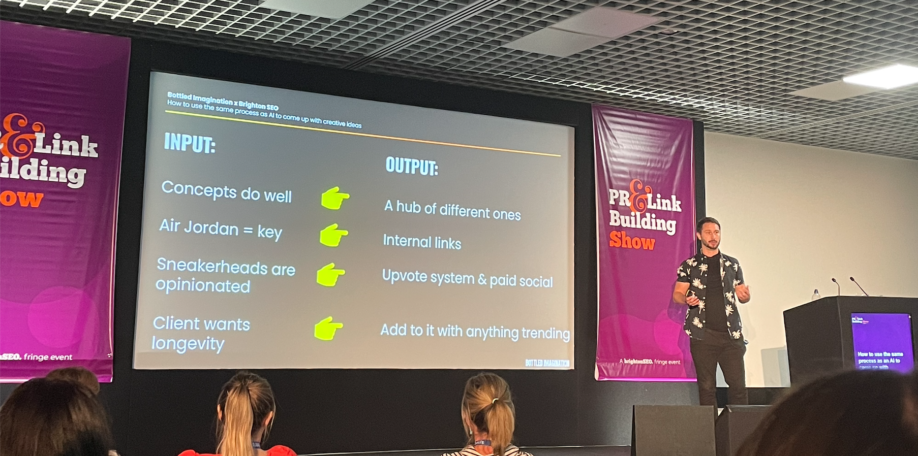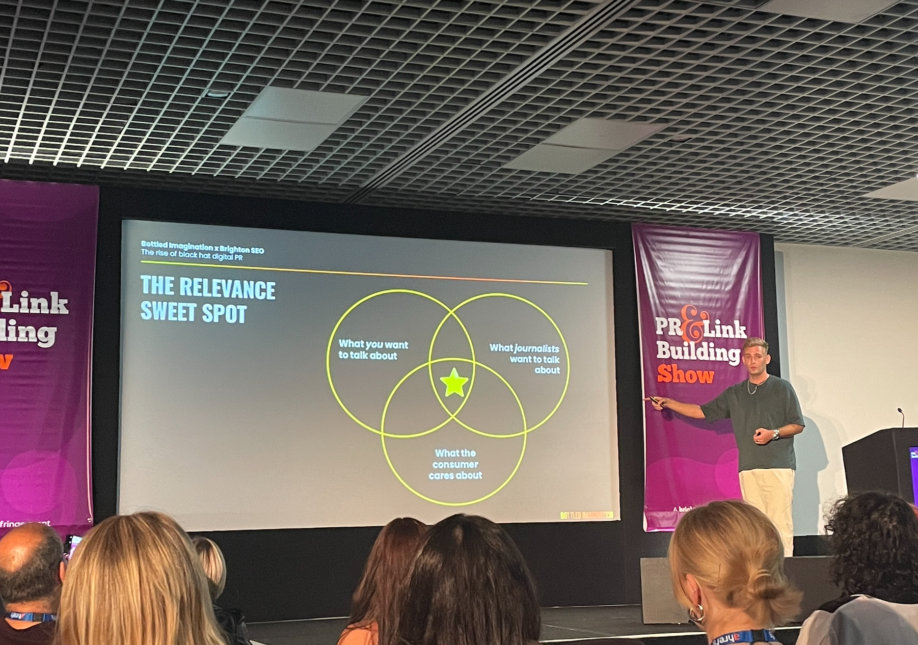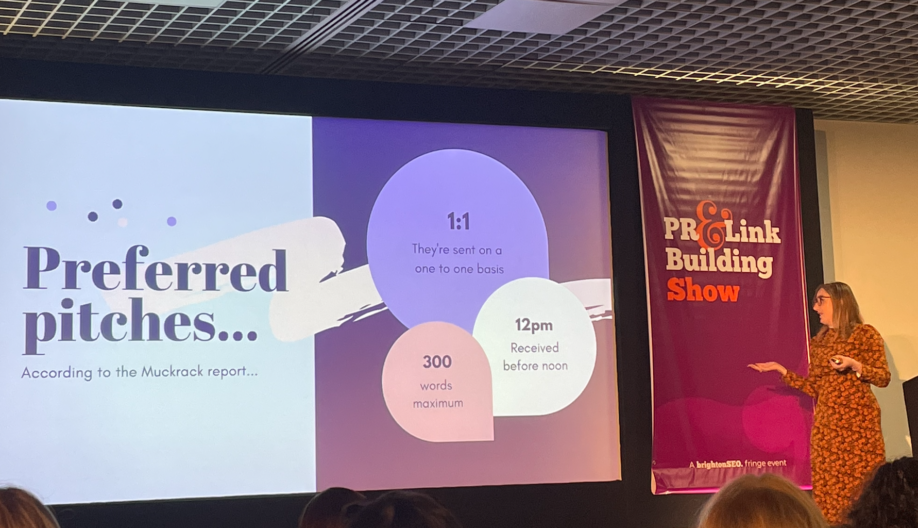I was in Brighton this week for the BrightonSEO fringe event, the PR and Link Building Show. I’ve been coming to BrightonSEO since the second edition more than a decade ago, but not attended in person since 2019, when I trained and spoke here. It was great to be back among the digital PR and search community and it was among the most valuable days I’ve experienced at the show.
Here are some key takeaways:
Google’s new priorities require a shift in tactics
Two key recent Google developments came to the fore: Experience, Expertise, Authority, Trust (EEAT) as a quality rater (basically, Google wants to reward first-hand experience of a topic), and the Google Perspectives section on its search results page.
Firstly, let’s look at EEAT. To demonstrate authority on a topic, Lauren Hewitt-Crabb from Blue Array said that brands must:
- Create content that utilises their expertise
- Showcase their internal experts
- Be relevant and topical, and get involved in the conversation
She included a great example of a pension client. The agency focussed on the rising cost of childcare using research to demonstrate how childcare costs often make it difficult for people to put toward their pension. The campaign gained 80 links for the client, and it even ranked top on Google for ‘pension’.
Lauren concluded that to succeed at EEAT, brands should:
- Only use expert quotes that add value
- Don’t pretend to know what they don’t know
- Be the first to jump on a trend
Digital PR consultant Abbie Johnson of We Are North cited EEAT as one of her three pillars of reactive SEO, alongside Objectives and Reporting. Successful reactive PR relies on speed, budget and creativity, Abbie said. It’s about joining the relevant audiences quickly. Brands need to tick these three boxes with their content:
- Is it relevant to the target audience?
- Is it a topic the brand has authority to discuss?
- Is it an original angle?
James Hayward-Browne from Bottled Imagination added the “relevance sweet spot” lay at the intersection of “what you want to talk about”, “what journalists want to talk about” and “what the consumer cares about”.
Influencers’ role in EEAT and Google Perspectives
In his talk on search-integrated influencer marketing, Ashley Liddell highlighted that Google is looking to combat the increasing use among consumers to use TikTok, Instagram and Pinterest for search. Google’s new Perspectives search element emulate those influencer-led platforms, so there is an opportunity here for brands to work with creators to help build their search profile.
Liddell underlined that content should inspire, educate and entertain, citing the example of financial app Revolut’s partnership with YouTubers Sidemen, which generated more than 70 million impressions.
Creativity is more valuable than ever
Given that both Google and journalists want original and engaging content, marketers are tasked with being ever more creative. My favourite talk of the day was Luke Cope’s funny and engaging talk on “how to generate ideas like an AI”. Luke talked the audience through several campaigns end-to-end, citing the data and thinking behind them. These included arguing that you can get better 4G on the moon than in some parts of rural Britain, to customised sneakers (trainers), and even creating a fake footballer to highlight the risks of gambling. All of which created coverage because they were interesting angles.
Finally, I also really enjoyed Zoe Burke’s talk on how to pitch to a journalist, which invited PRs to focus on…
- Personalised pitching
- Pitching before noon
- Summarising the story in 300 words max
- Exclusivity
- Follow-ups
…to stand a better chance of the journalist noticing you among their many hundreds of unread emails.
Thanks again to Kelvin and the BrightonSEO team for another phenomenal show.




